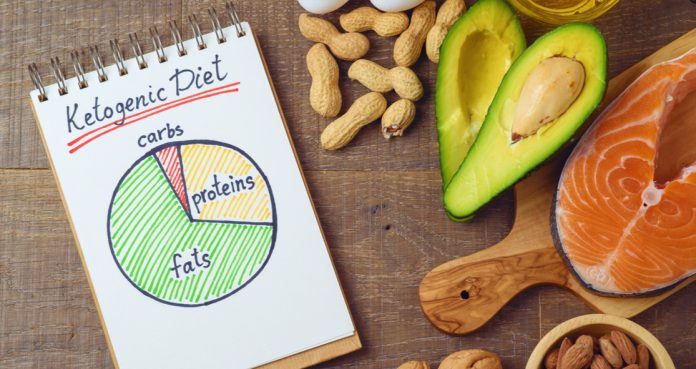One of the most trending diets followed by many people, including celebrities, has been the ketogenic diet, also called keto. It includes eating foods rich in protein and fat, and extremely low in carbs.
Limiting carbs is undeniably one of the major factors when it comes to losing weight. However, you do not have to follow the extreme keto version; a normal “low-carb diet” might be the better option for you. So, what is the difference?
According to a registered dietician Kristin Kirkpatrick of the Cleveland Clinic’s Wellness Institute, the biggest difference between the keto diet and the low-carb diet is that the main goal of keto is to induce ketosis.
Ketosis is a process that produces ketones that are made by your liver using fatty acids. It is a metabolic state that helps your body to switch over from burning glucose and glycogen to burning fats. It is not easy to get to the ketosis state and it is equally difficult to maintain it; however, it can help you lose weight.
Kristin said, “A regular low-carb diet, in comparison, may never reach the state of ketosis, and not only because you’re eating more carbs than in a keto diet.”
Typically, the keto diet limits everything. It included 5 to 10 percent of carbs, 15 to 20 percent proteins, and 60 to 75 percent fats. And a low-carb diet may actually have similar levels of carbs.
Kristin explained that the daily amount of carbs might vary between people. The Mayo Clinic defines a low-carb diet as 20 to 60 grams a day, which is within most people’s keto percentages.
So, what makes the keto diet different from the low-carb diet is that it also restricts protein, which is an important source of amino acids, which the liver can turn into glucose for fuel instead of using fat, explained Kristin.
She said, “You’ll need to down on both protein and carbohydrates, then, to force your body into ketosis, and a low-carb only restricts carbs.”
Despite the fact that there has been a lack of long-term trials on the keto diet for weight loss, Kristin said, “If followed closely, both keto and low-carb diets can help with losing weight.”
She explained that the keto diet is more sustainable for long-term weight loss and maintenance.
“It’s notoriously tricky to stay on track with keto because the keto diet has to be followed perfectly to stay in ketosis. Even cheating a little bit can throw you out of that fat-burning state. Not to mention the sheer power of the carb cravings, which can be stronger on a more restrictive diet like keto,” said the dietician.
Kristin added, “Many of my patients have found it easier to sustain low-carb than keto because it allows more flexibility in range of carbs, and it doesn’t necessarily limit protein content of any kind.” However, she further explained that if you are determined and motivated, the ketogenic diet might work better for you.
“The best way to determine which diet is right for you is to look at other factors in your life,” said Kristin.
Before considering the keto diet, she recommends thinking about your schedule, current diet, any medical conditions, and other aspects of your lifestyle. Remember, it takes time to achieve fitness goals, including weight loss, irrespective of what diet you choose. You need to be prepared before committing to your diet.























